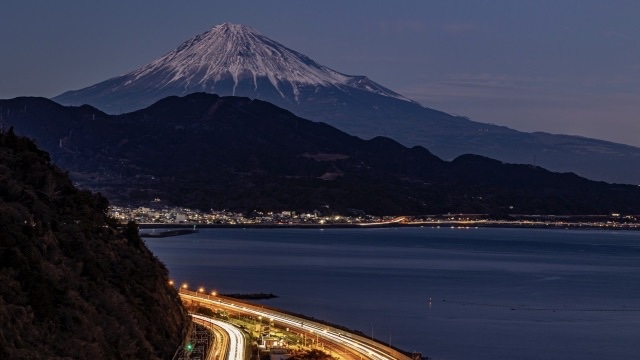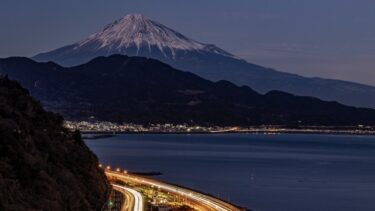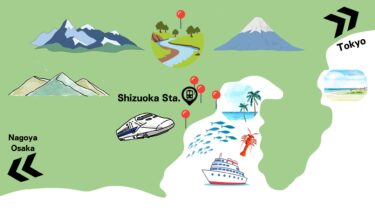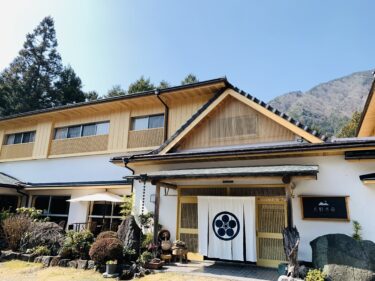🗻 Have you ever seen a photo of Mt. Fuji rising above a sweeping coastline, with curving expressways and shimmering ocean below?
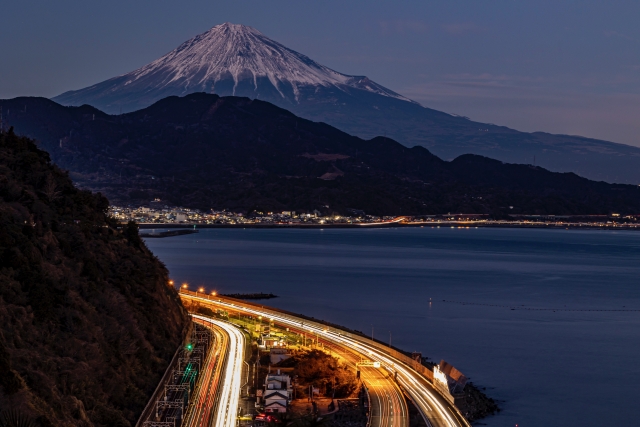
📸 This iconic view isn’t from a drone or a postcard—it’s a real place you can visit: Satta Pass(薩埵峠), a scenic viewpoint located in the Yui area of Shizuoka City, along the historic Old Tokaido Road.
Satta Pass Overview – A Picture-Perfect Fuji Viewpoint
Located between Okitsu and Yui in Shizuoka City, Satta Pass is a scenic hillside viewpoint known for its stunning panorama of Mt. Fuji with breathtaking ocean views.
Easily accessible yet rich in natural and cultural charm, it’s a must-see destination for travelers seeking an iconic and authentic view of Japan.
📸 Mt. Fuji, Suruga Bay, and Japan’s Scenic Heritage
Satta Pass offers a panoramic view that captures the essence of Japan in a single frame.
🗻 Towering above is Mt. Fuji, framed by the deep blue waters of Suruga Bay, while the Tokaido Line and Tomei Expressway run along the coast below.
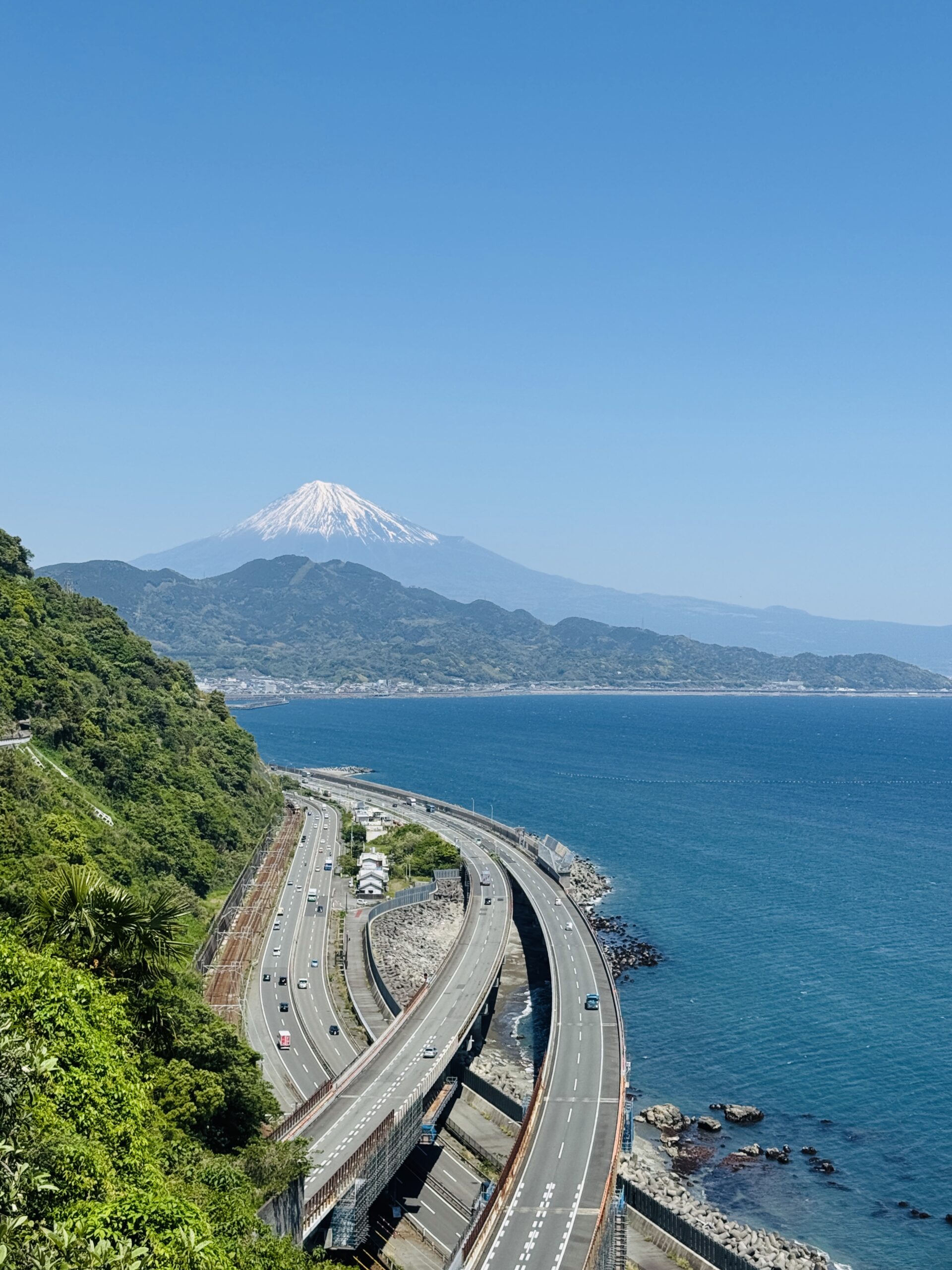
This rare combination of natural beauty and human infrastructure creates a uniquely Japanese landscape—one where tradition and progress exist side by side.
Whether you’re a first-time visitor or a seasoned traveler, this viewpoint leaves a lasting impression.
🖼 See Satta Pass Through the Eyes of a 19th-Century Japanese Artist
In the 1830s, during Japan’s Edo period, renowned Ukiyo-e artist Utagawa Hiroshige captured the breathtaking view from Satta Pass in his famous woodblock print series, The Fifty-Three Stations of the Tōkaidō.
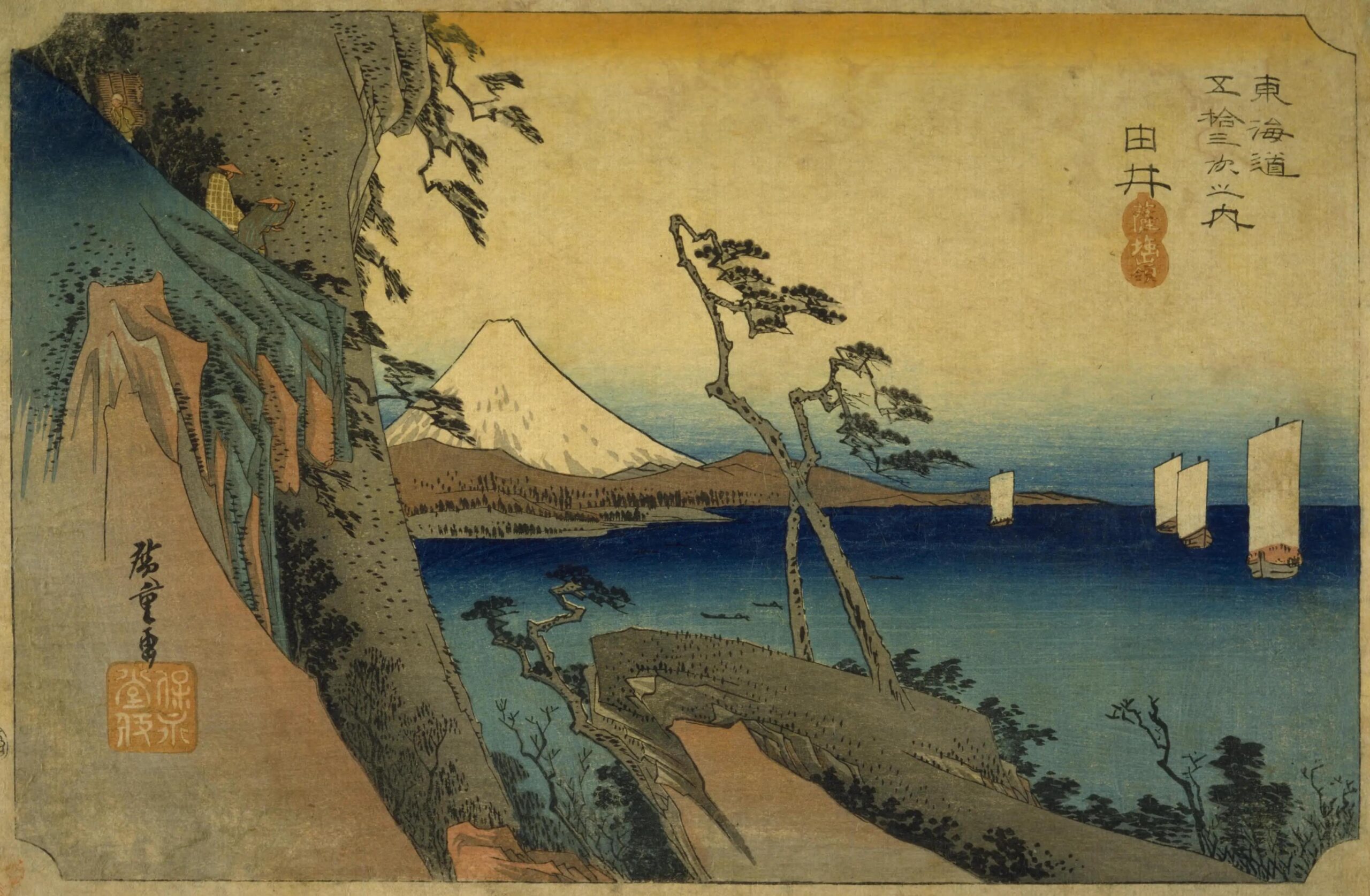
His artwork showcases travelers along a cliffside trail, with Mount Fuji rising majestically above Suruga Bay—a composition that has captivated viewers for nearly two centuries.
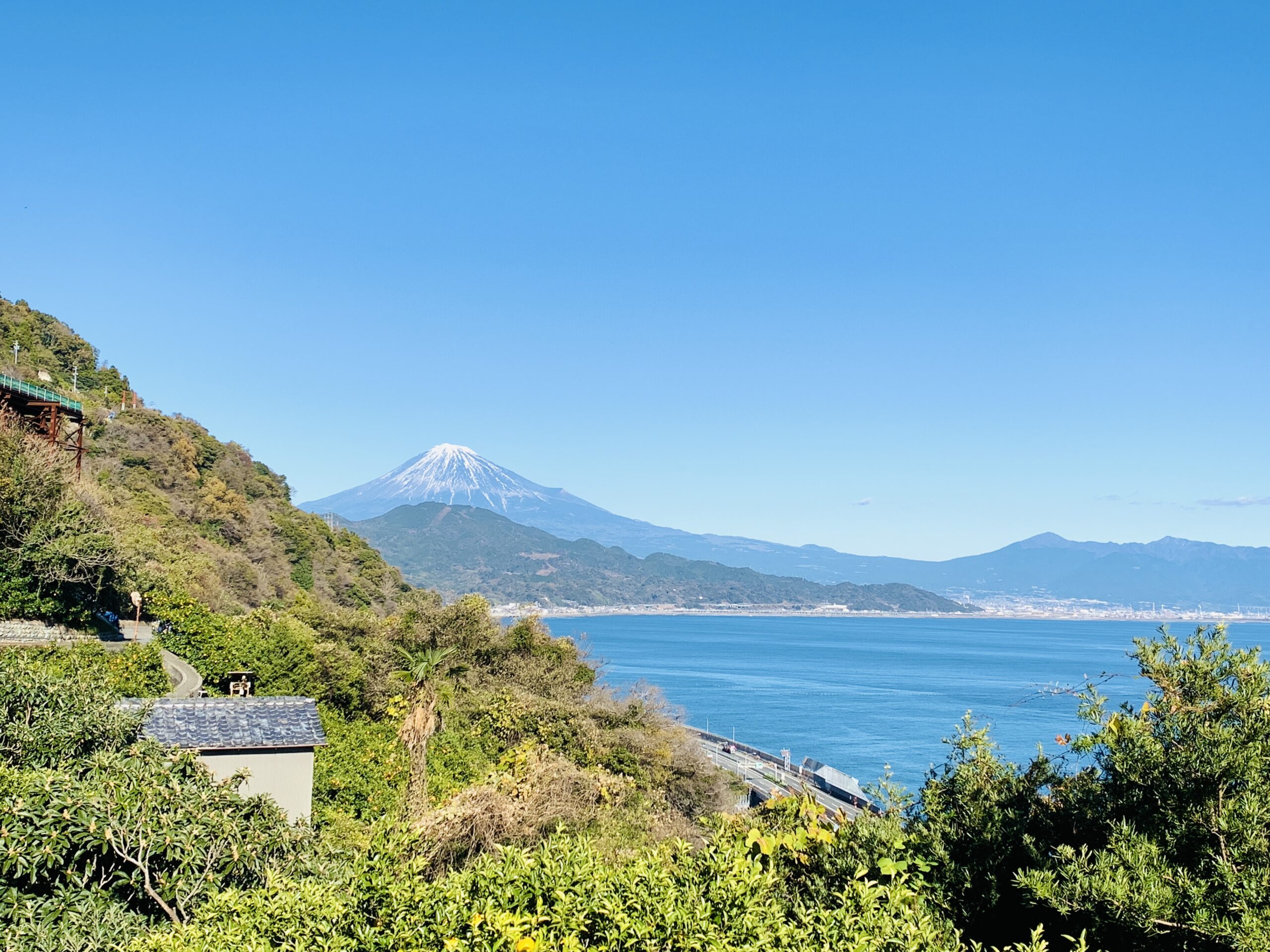
Remarkably, much of what Hiroshige saw remains today.
📸 While modern roads and railways have replaced the dirt paths of the Edo era, the natural layout of the coastline, the curve of the bay, and the silhouette of Fuji are still instantly recognizable.
Standing in the same place Hiroshige once depicted lets you feel connected to the past. It’s a unique chance to see Japan as a 19th-century artist saw it.
☀️ Best Time to Visit – Sunrise and Clear Winter Days
While Satta Pass offers great views year-round, the best time to visit is during the cooler months—especially autumn, winter and spring.
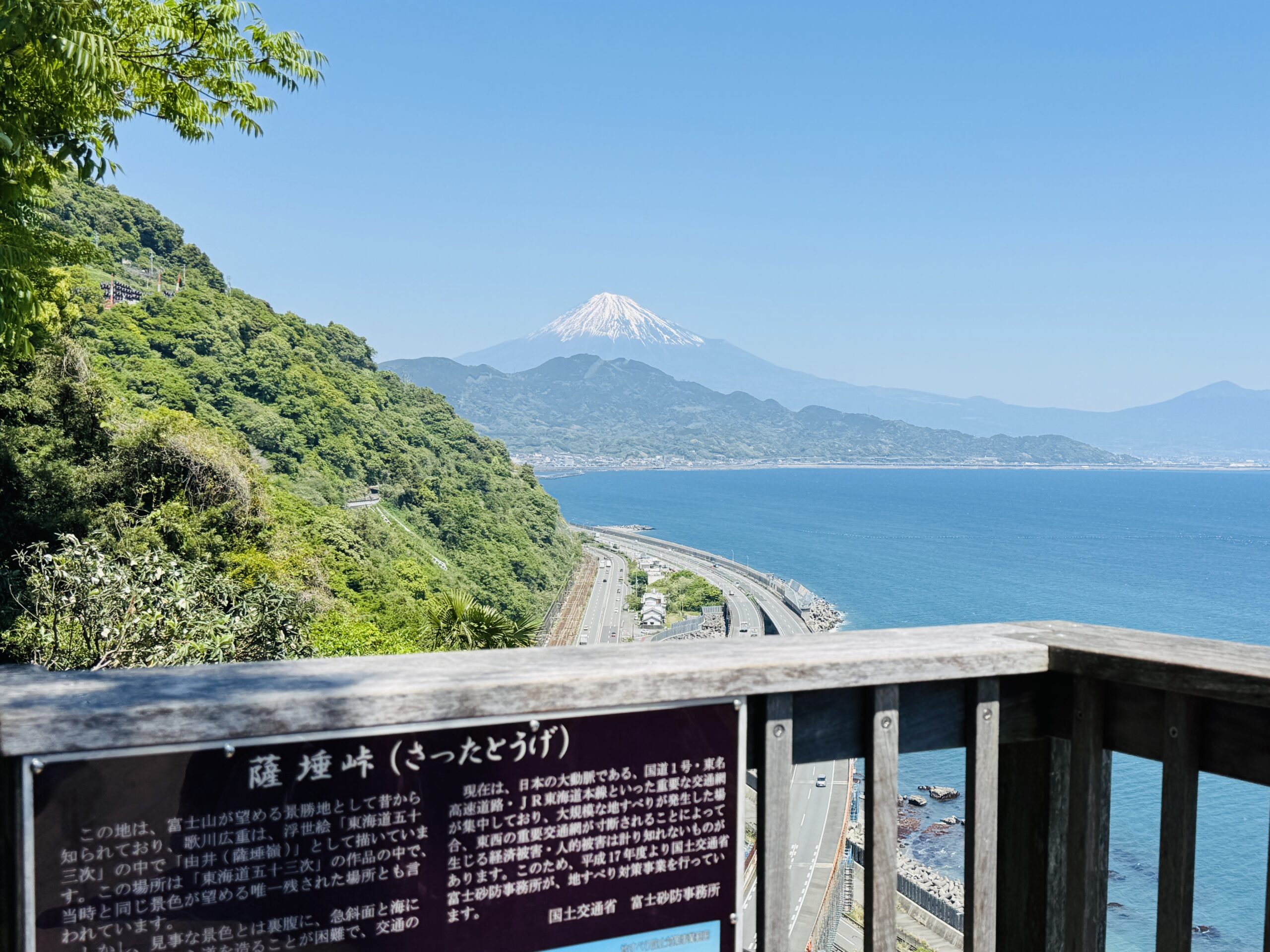
🗻 On crisp, clear days, Mt. Fuji appears sharp and snowcapped, standing majestically behind the curve of Suruga Bay. The dry air and low humidity of winter make visibility much higher than in the hazy summer months.
📸 For photographers, early morning is ideal. Around sunrise, the soft golden light illuminates Mt. Fuji and the bay, adding a magical glow to the scene.
この投稿をInstagramで見る
🌅 If you’re lucky, you might even catch wisps of mist drifting over the water or subtle shadows across the mountainside—perfect conditions for that unforgettable shot.
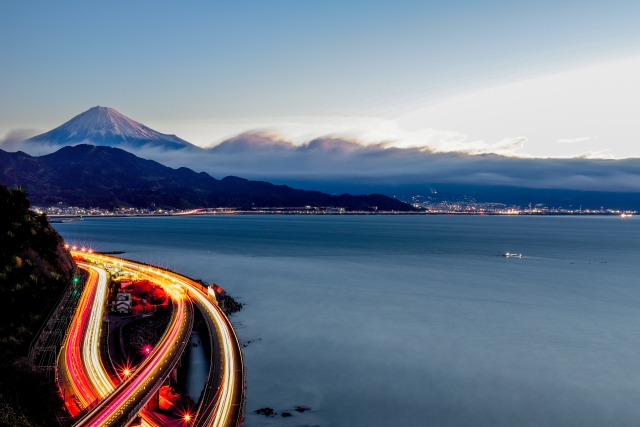
Getting to Satta Pass – Access & Travel Tips
Whether you’re coming by car or train, Satta Pass is an easy and approachable destination.
This section covers the different ways to reach the viewpoint—from scenic drives and local train stations to helpful taxi options—making it a perfect half-day trip for anyone staying in Shizuoka.
🗻 Looking for a Japanese-style stay in Shizuoka City? [caption id="attachment_5195" align="aligncenter" wid[…]
🚗 Observation Deck Access – Parking and a Short Walk to the Viewpoint
Satta Pass is surprisingly easy to reach by car. From JR Okitsu Station or Yui Station, it takes just about 10-15 minutes to drive up to the parking area near the viewpoint. From there, it’s only a short and gentle walk to the famous viewing spot.
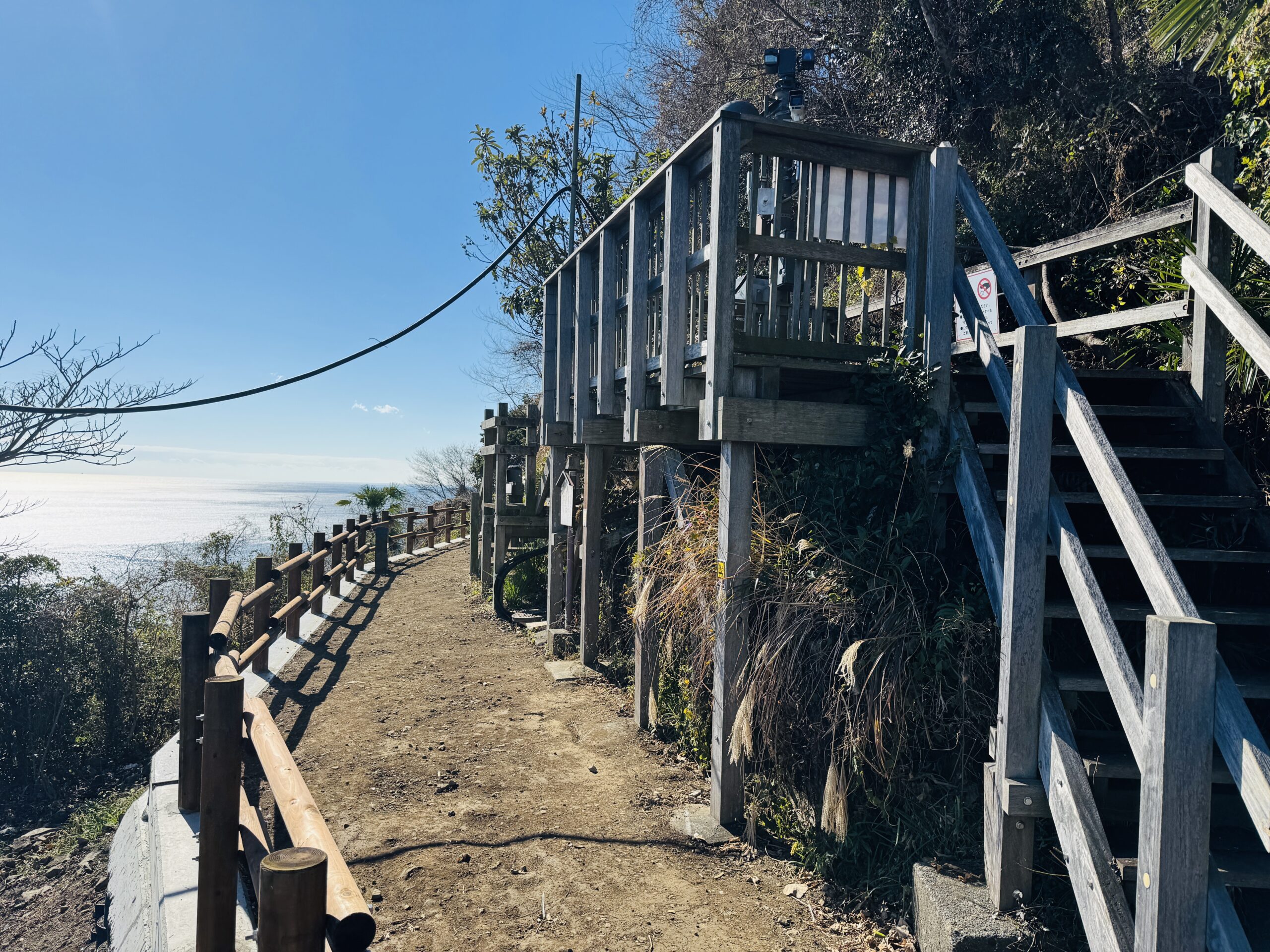
However, please note that some parts of the road to the parking lot are narrow, and passing other vehicles may require some care.
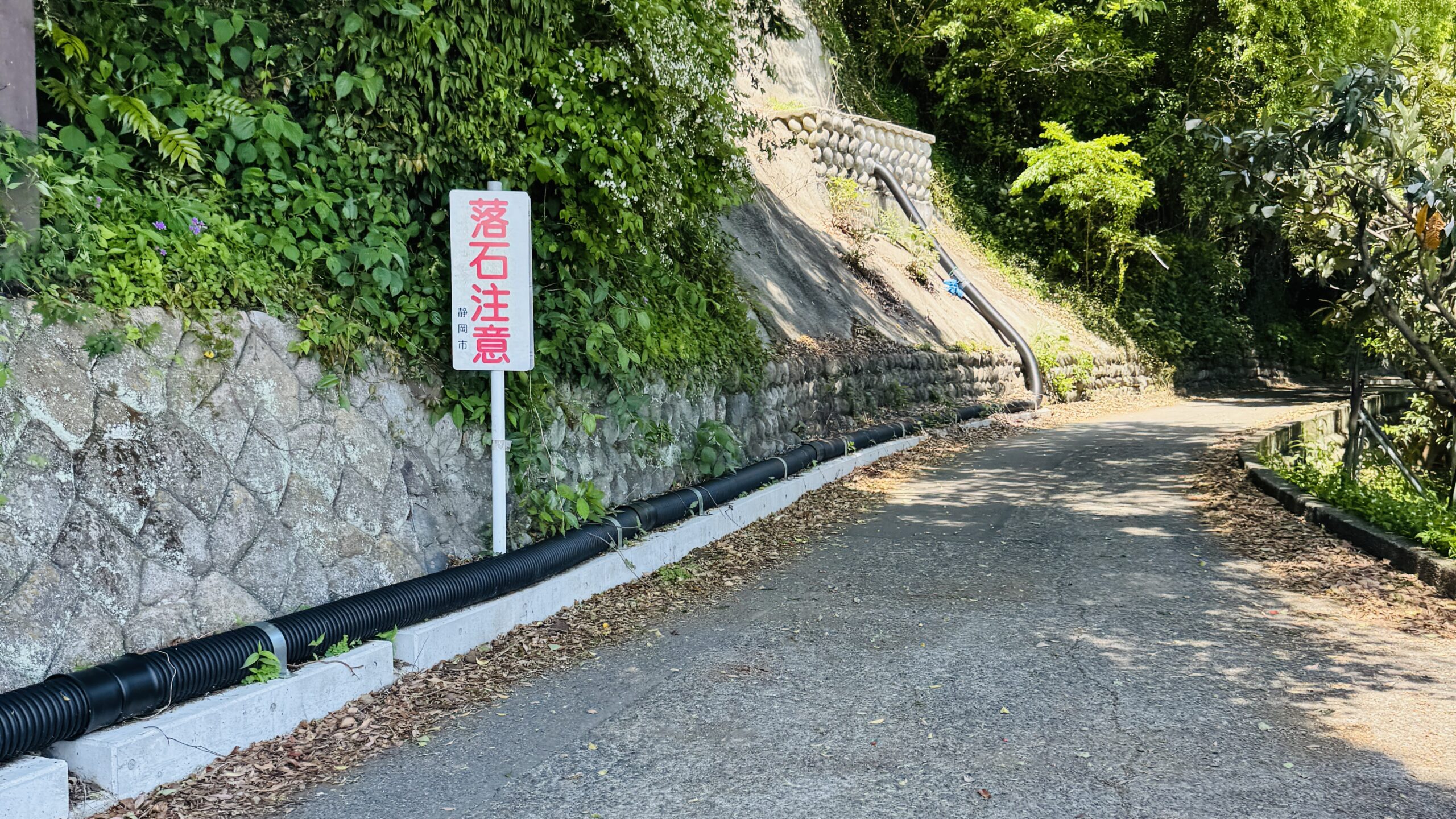
Drive slowly, be courteous to oncoming cars, and enjoy the scenic ride through this peaceful countryside area.
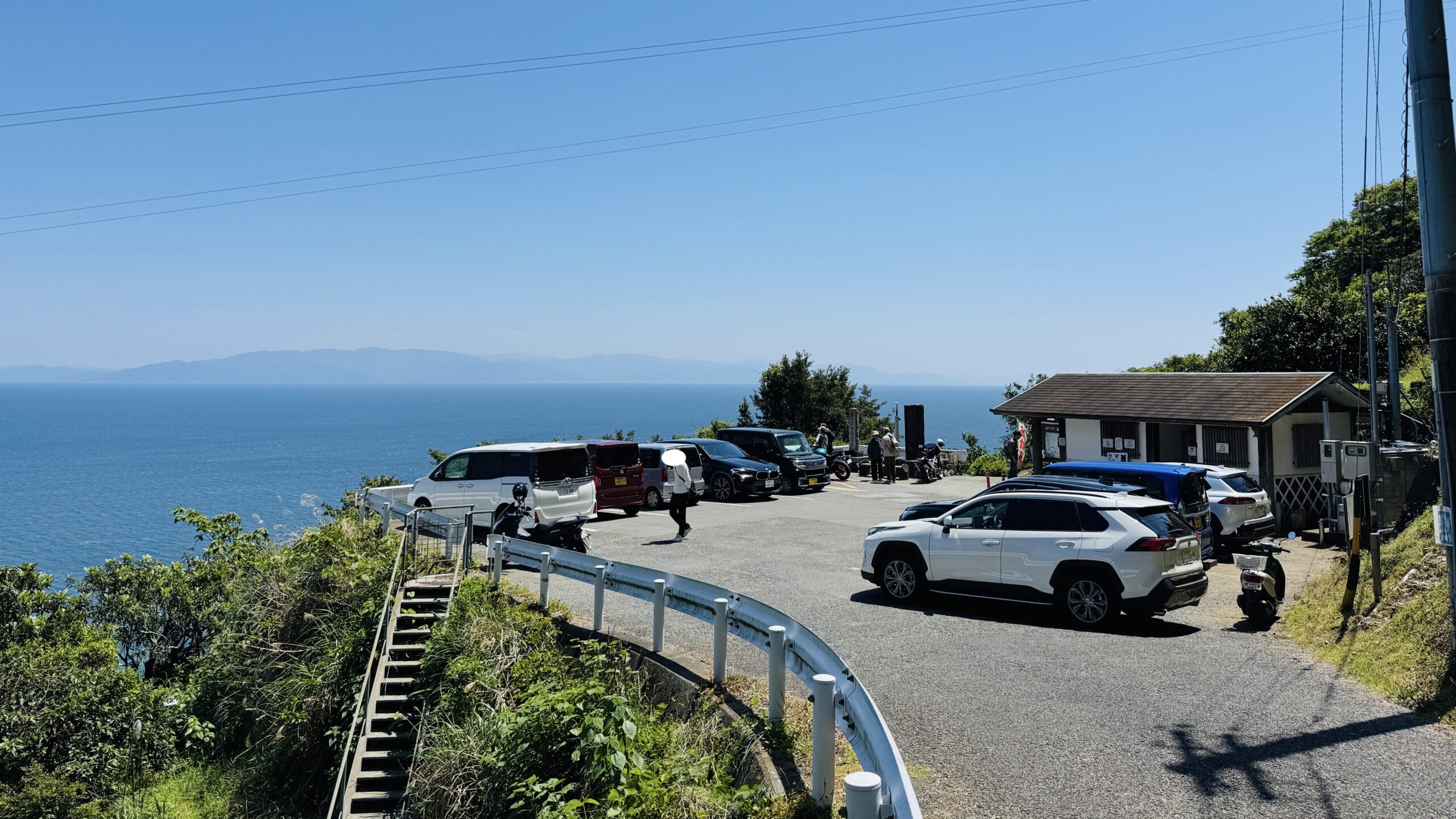
🅿️ Parking is free, but spaces are limited—so arriving early in the morning, especially on weekends or during peak seasons, is recommended.
🚃 From Okitsu Stations: Taxi and Walking
If you’re not driving, you can also take a taxi from JR Okitsu Station to the parking area near the viewpoint.
Taxis may not always be waiting in front of JR Okitsu Station, so it’s a good idea to use the “GO” taxi app if you need a ride.
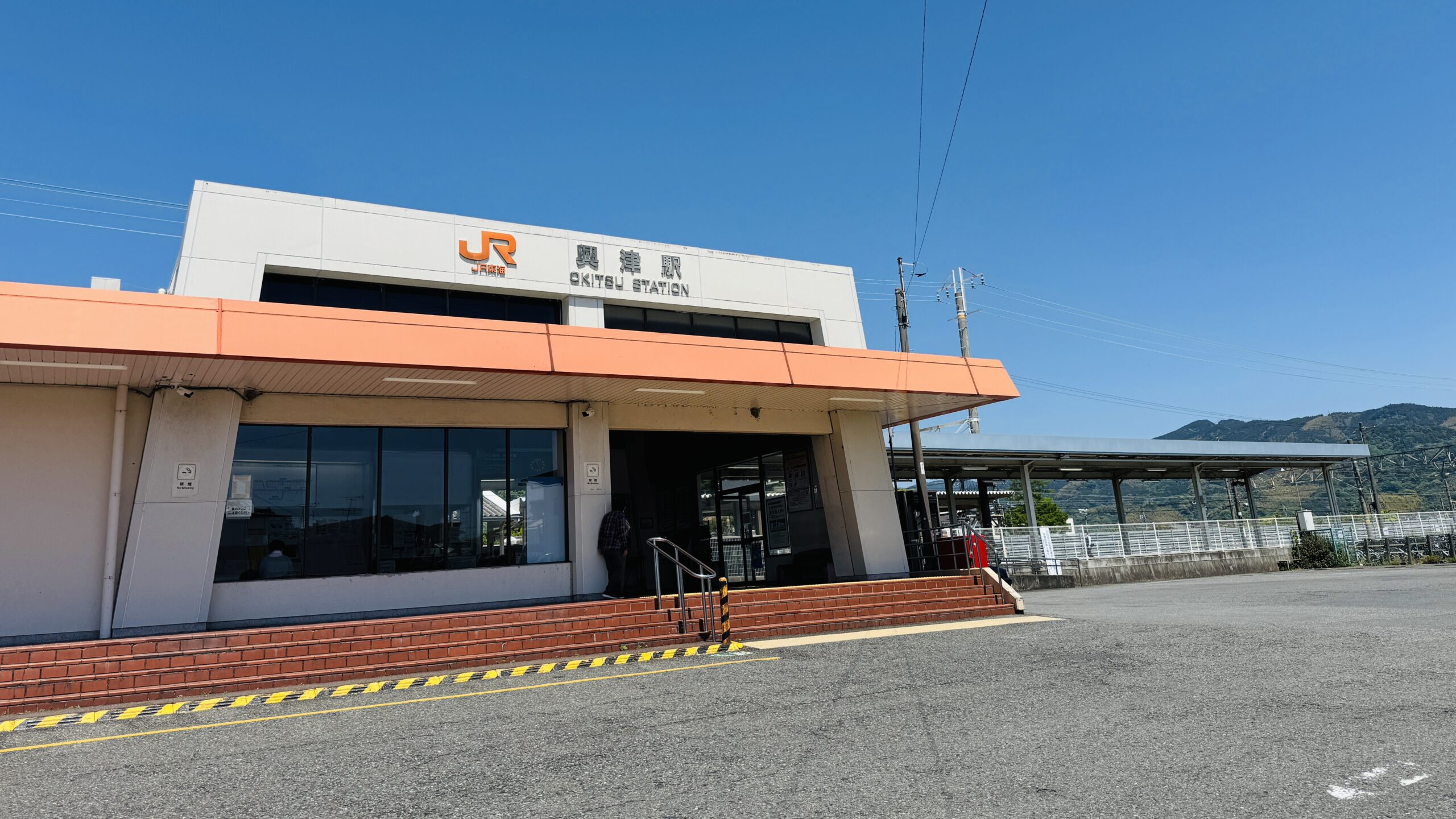
⚠️ Please note: Around the parking area near the viewpoint, it will be hard to find an available taxi for your return trip, even when using the app.
✅ One popular option is to ride up by taxi and then walk down to JR Yui Station along the scenic path.👟
We’ll introduce the walking route in the next section.
Exploring the Satta Pass Trail – A Scenic and Cultural Walk Through Time
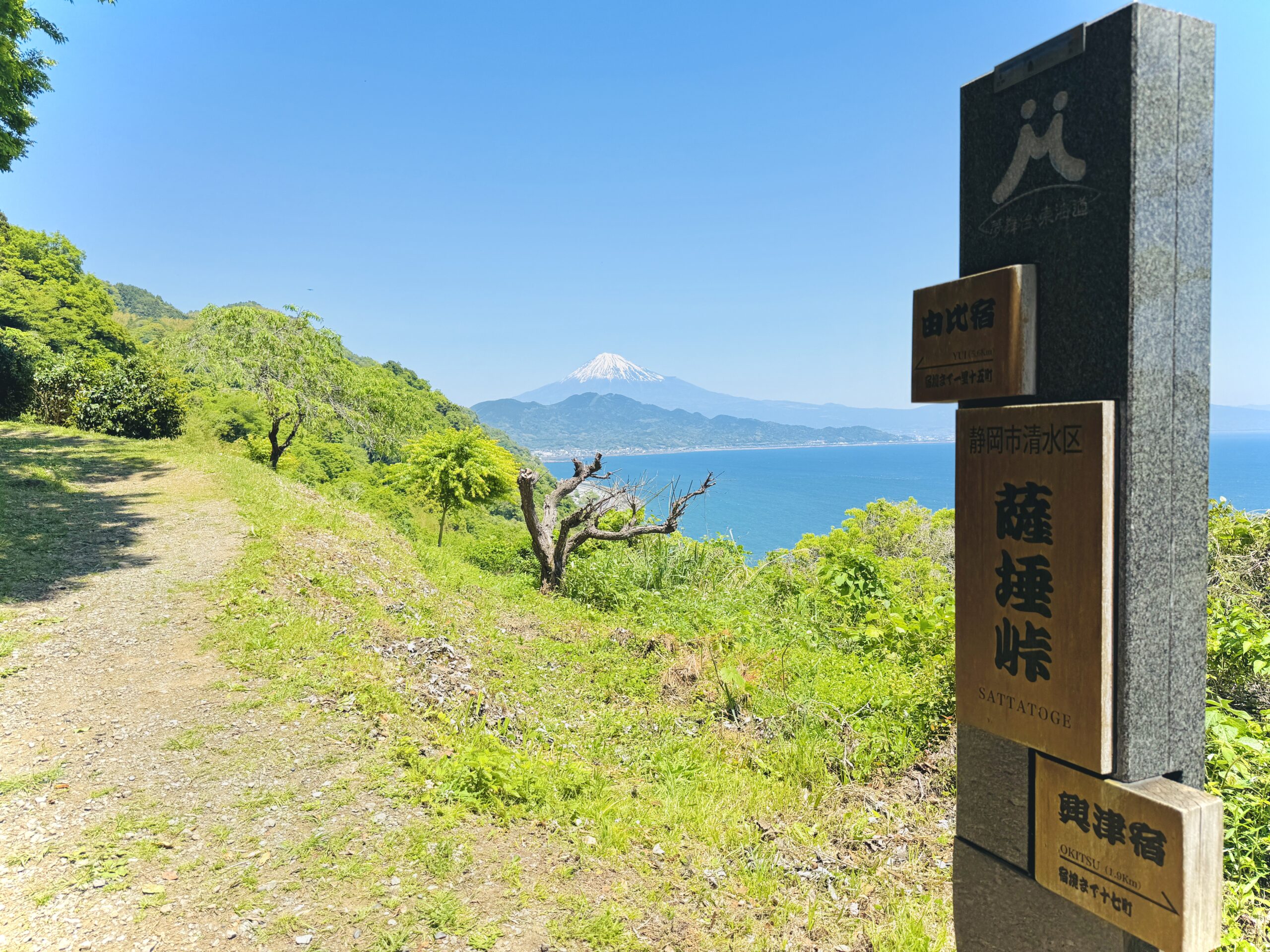
🚶♂️ Walking from Okitsu to Yui – Full Trail in 90 Minutes
The Satta Pass trail stretches between JR Okitsu and JR Yui Stations. Walking the full trail takes about 90-100 minutes, depending on your pace.
-
From Okitsu Station: It’s about a 40–50 minute walk uphill to the observation deck.
-
From the deck to Yui Station: The downhill route takes another 50 minutes.
The route is clearly marked and includes a mix of quiet roads, forest paths, and occasional signage to keep you on track.
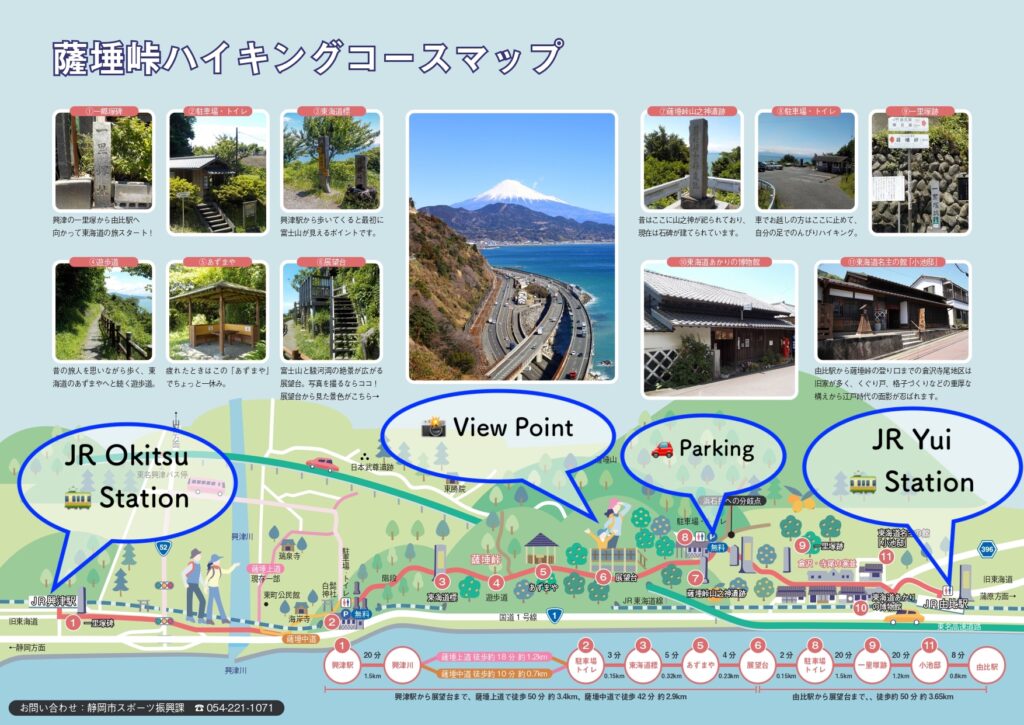
🌿 Trail Highlights – Ocean Views and History
The hike includes several points of interest that go beyond just the view:
🌊 Scenic ocean views:
From elevated points along the trail, you can enjoy wide views of Suruga Bay and Mt. Fuji.
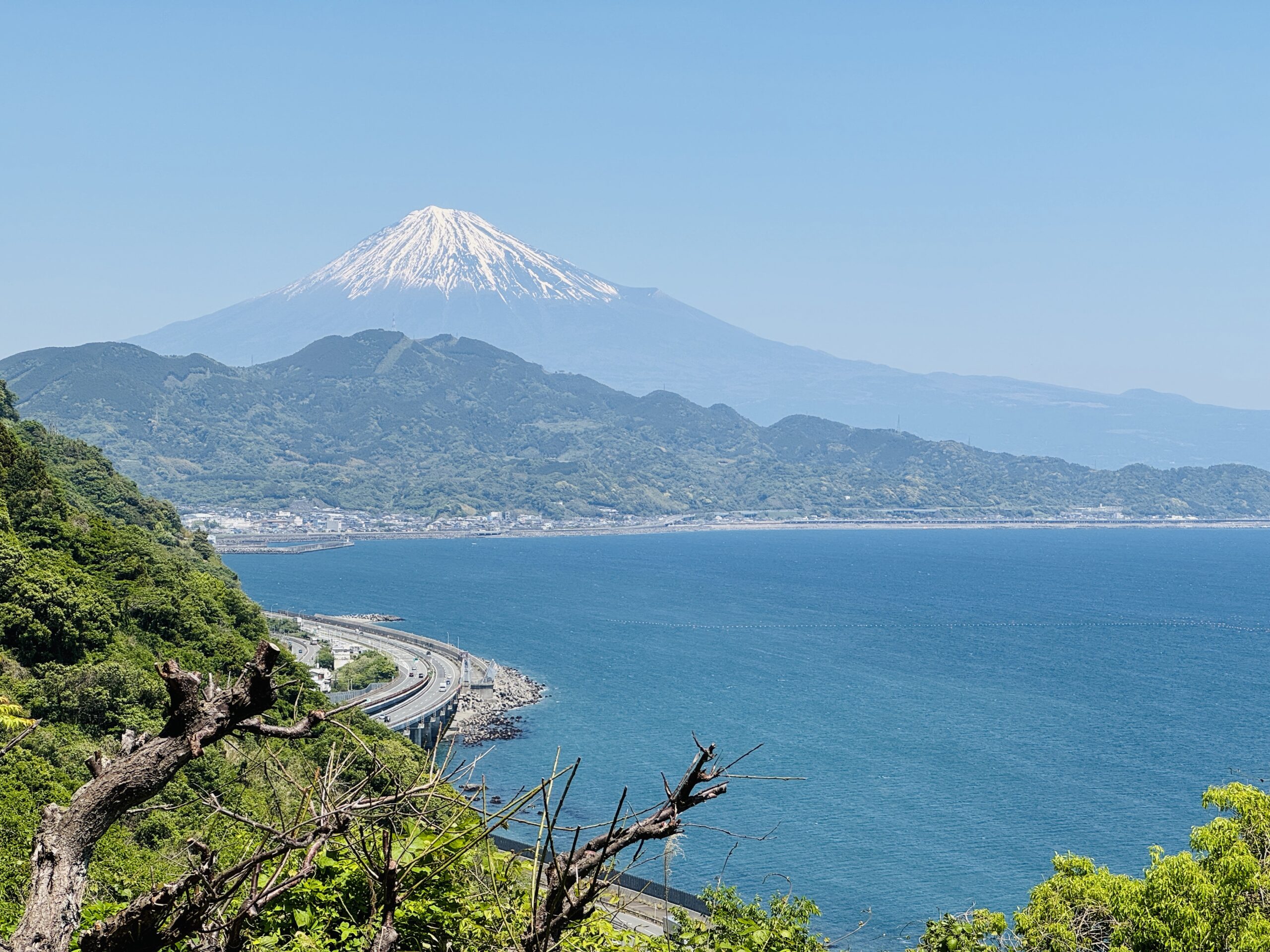
🏡 Historic atmosphere:
As you descend toward Yui, you’ll see old-style homes and visit the Tokaido Akari no Hakubutsukan (Museum of Historical Lighting), which features traditional lamps once used in Japanese homes.
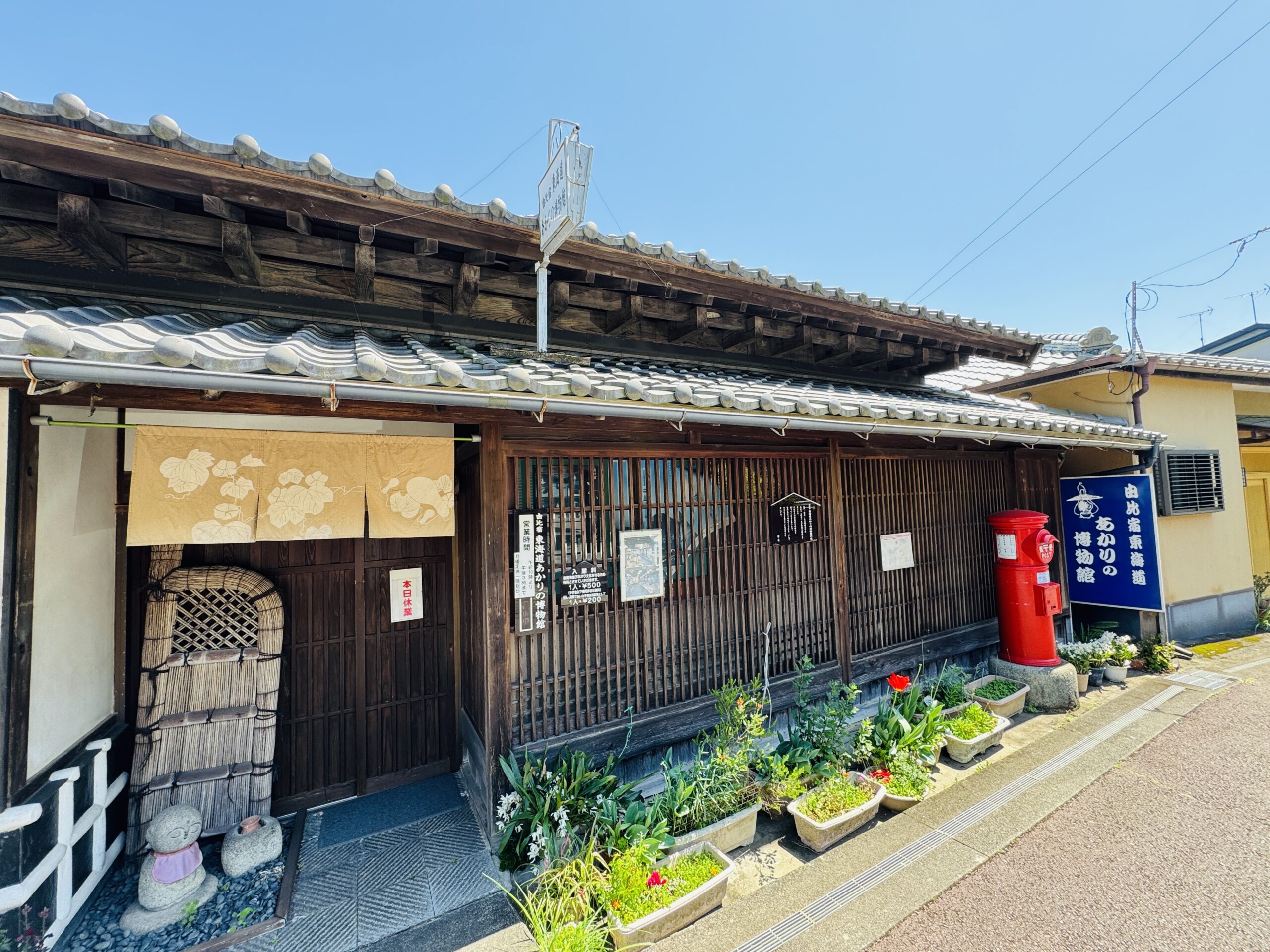
🚻 Public toilets are available at the Satta Pass trail entrance (Satta Tōge Iriguchi) and at the observation deck parking area.
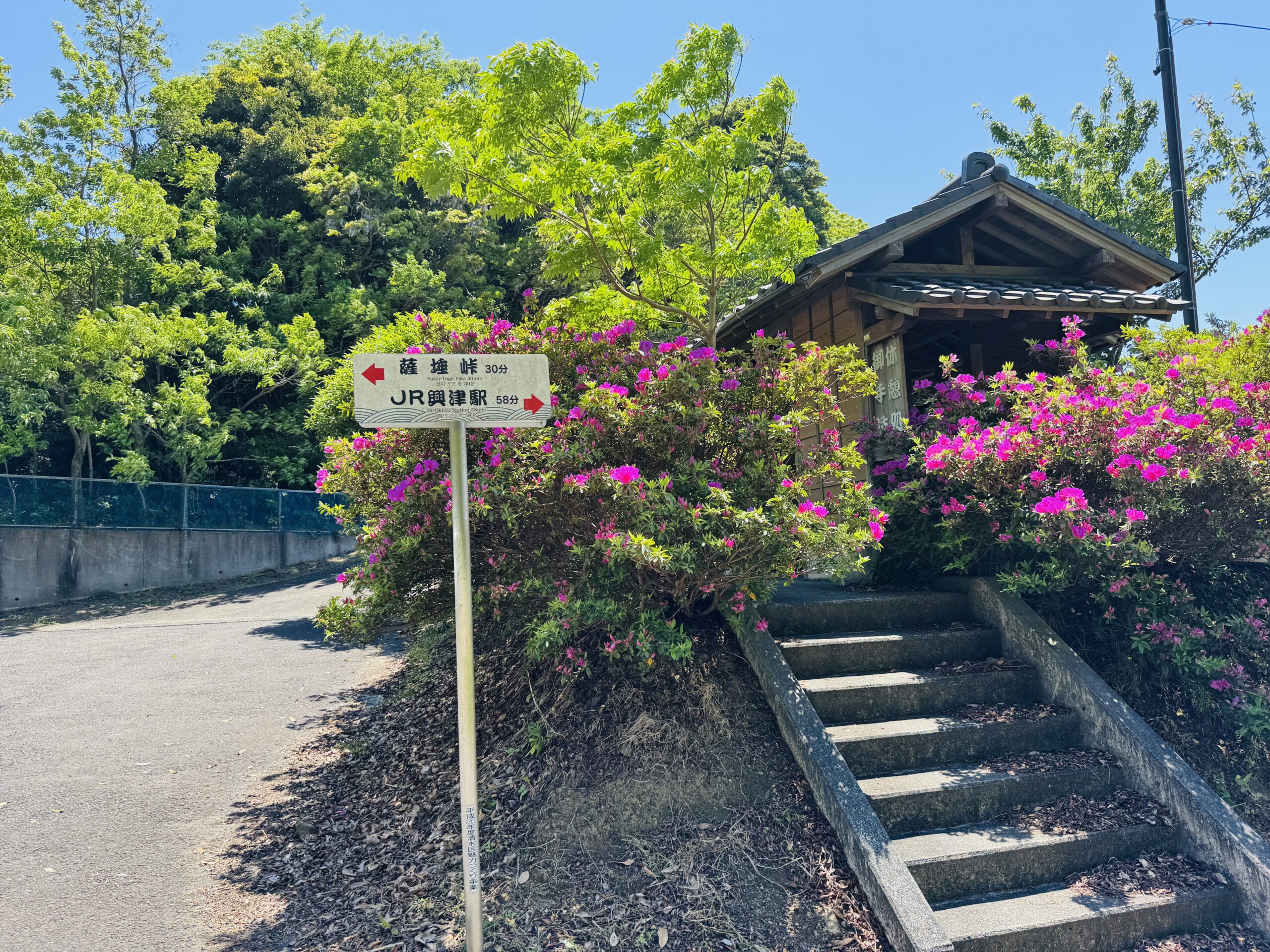
📷 Taxi Up, Hike Down – A Convenient & Scenic Option
If you prefer to avoid the uphill climb, here’s an easier way to enjoy the trail:
① Taxi to the Observation Deck Parking Lot
→ From JR Okitsu Station, ride up to the parking area near the viewpoint. From there, it’s just a 2–3 minute walk to the deck.
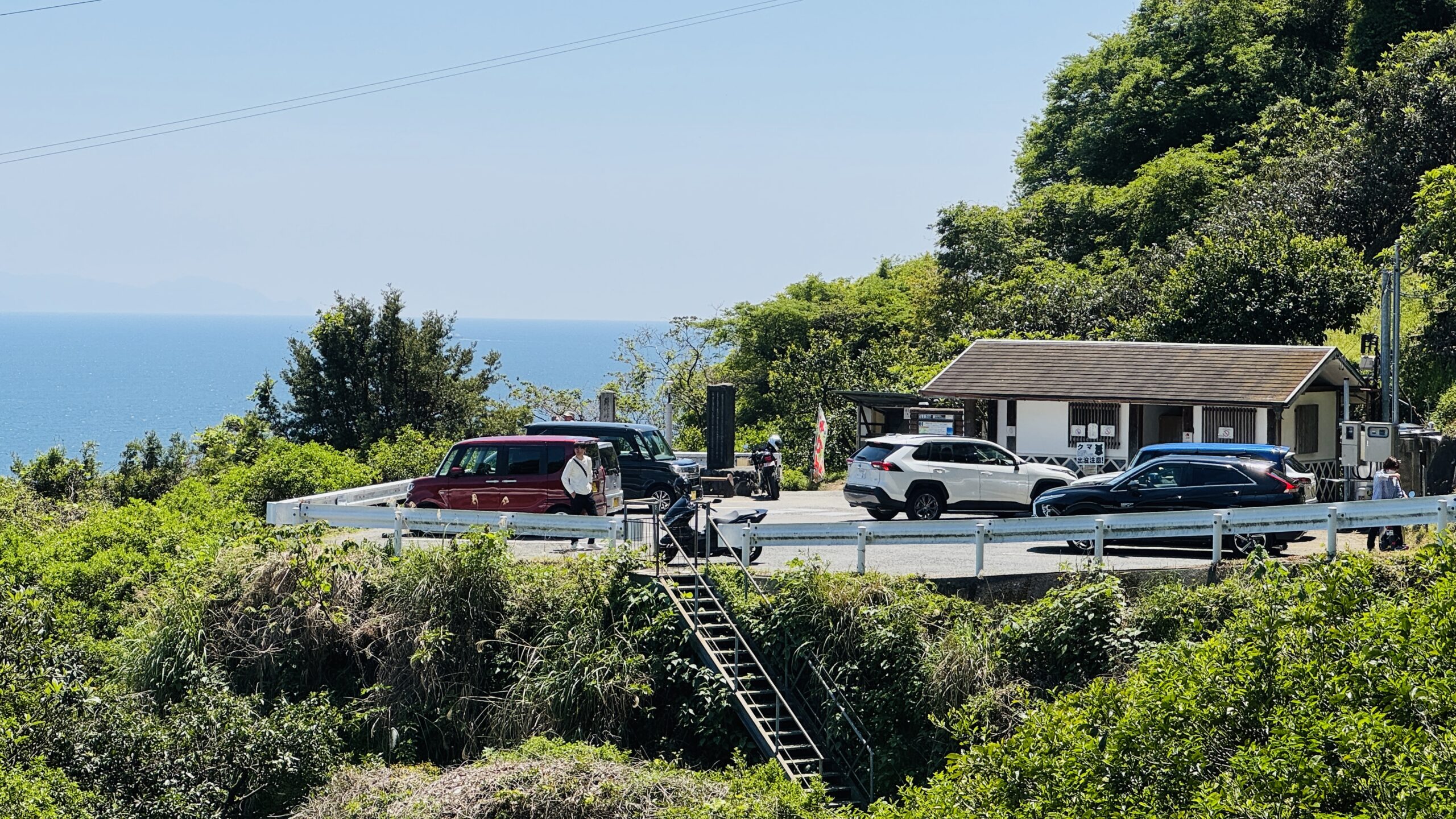
② Taxi to the Trailhead Entrance (Satta Tōge Iriguchi)
→ A 10–15 minute forest walk brings you to the viewpoint with less effort.
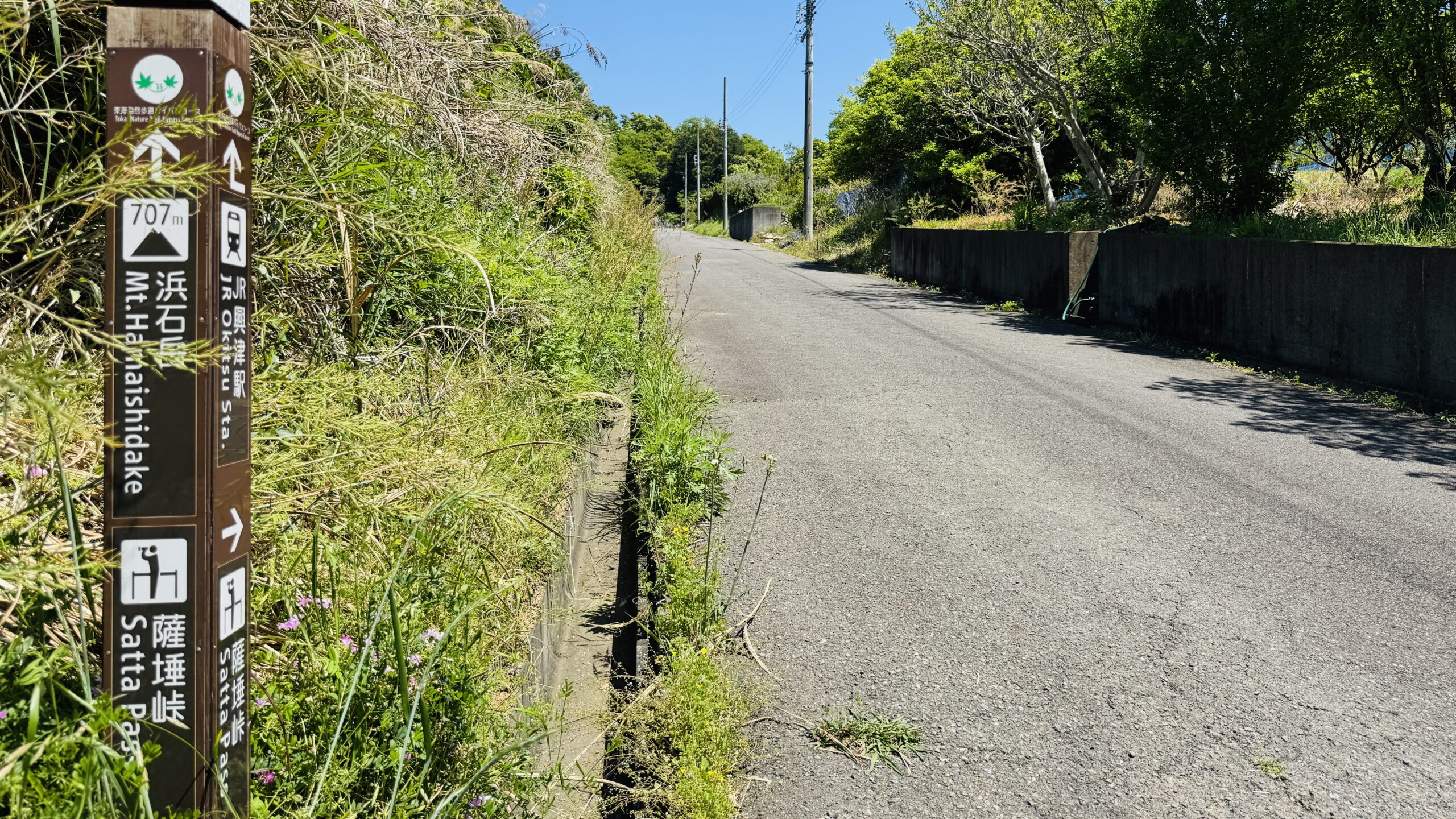
✅ Here’s the exact location of the Satta Pass trailhead (Okitsu side) on Google Maps for your reference.
From the deck, walk 50 minutes downhill to JR Yui Station. The path is rich in historical charm, and near Yui Station you’ll find cozy seafood restaurants perfect for a post-hike lunch.
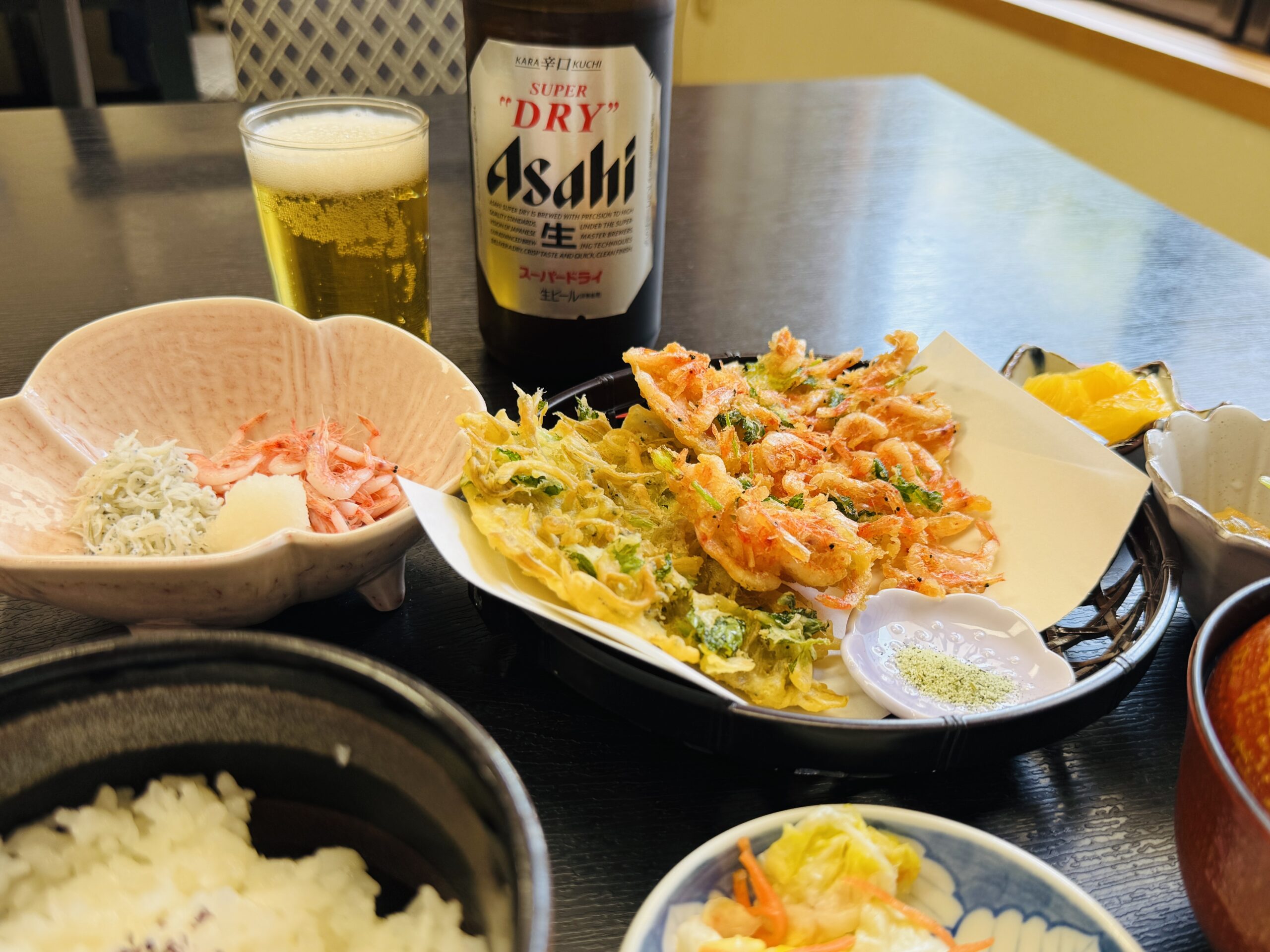
Summary – Why Satta Pass is Worth the Visit
Satta Pass is more than just a scenic viewpoint—it’s a place where Japan’s natural beauty, deep history, and modern life blend into one unforgettable experience.
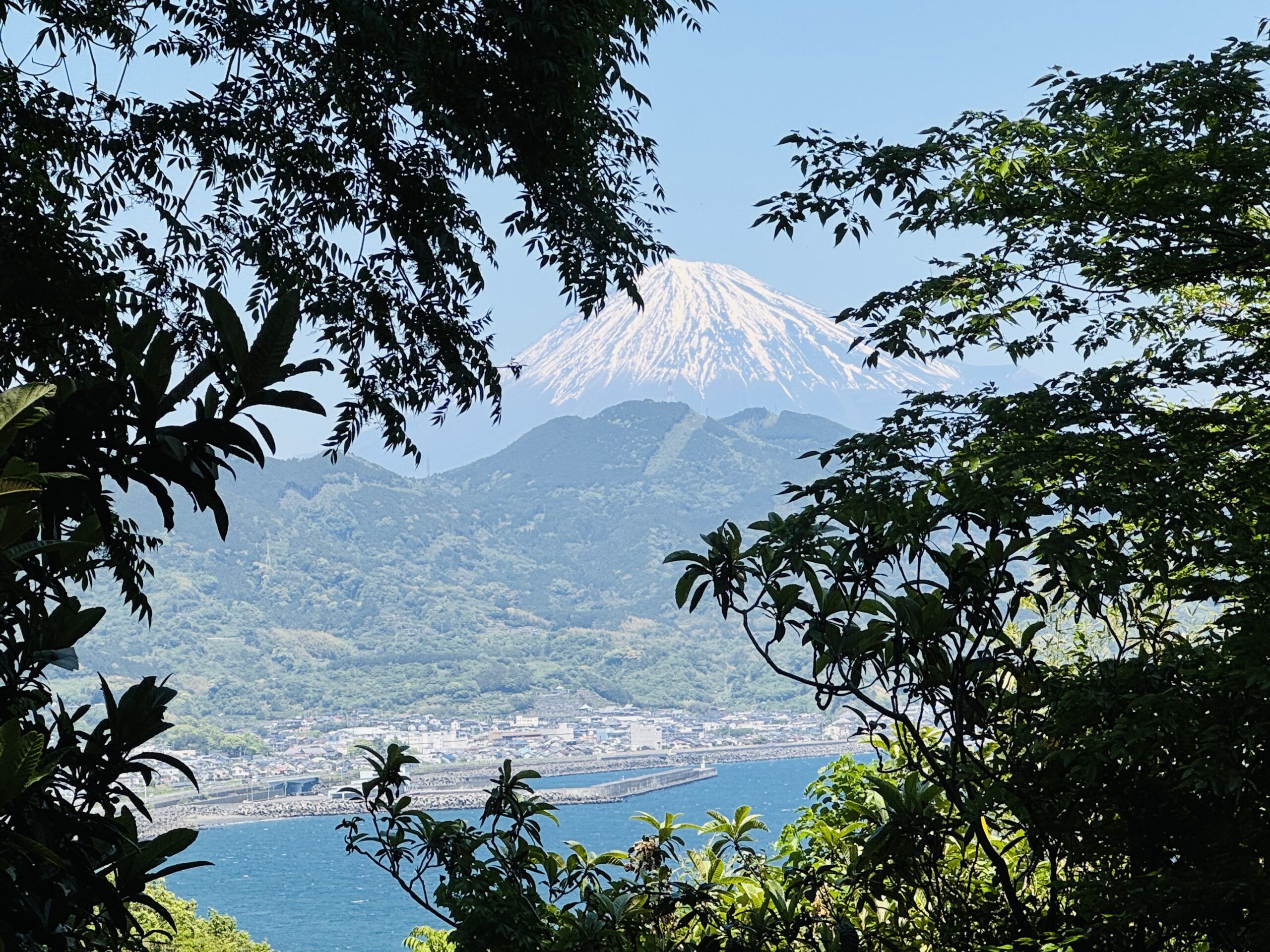
From the breathtaking panorama of Mt. Fuji and Suruga Bay to the echoes of the old Tokaido Road once traveled by Edo-period (1603–1868, Western calendar) pilgrims, every step here connects you to Japan’s timeless spirit.
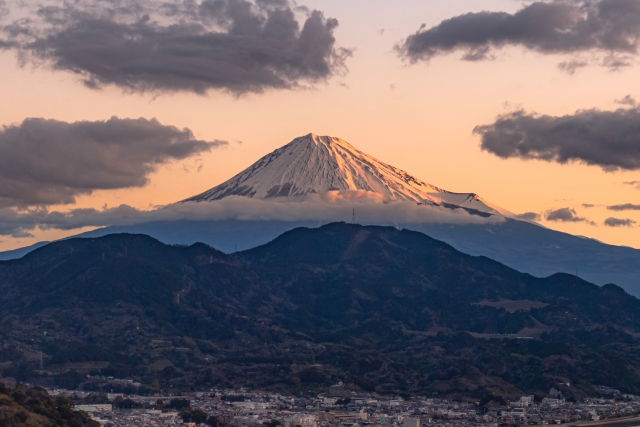
Whether you drive to the observation deck, hike the historic trail, or combine both for the best of both worlds, visiting Satta Pass offers a rare chance to see Mt. Fuji framed by ocean, coastlines, and history—all in one view.
If you’re looking for a hidden gem that captures the heart of Shizuoka and Japan itself, Satta Pass is a destination not to be missed.

